ULEZ: Ultra Low Emission Zone expansion and the price of pollution
- Published
- comments
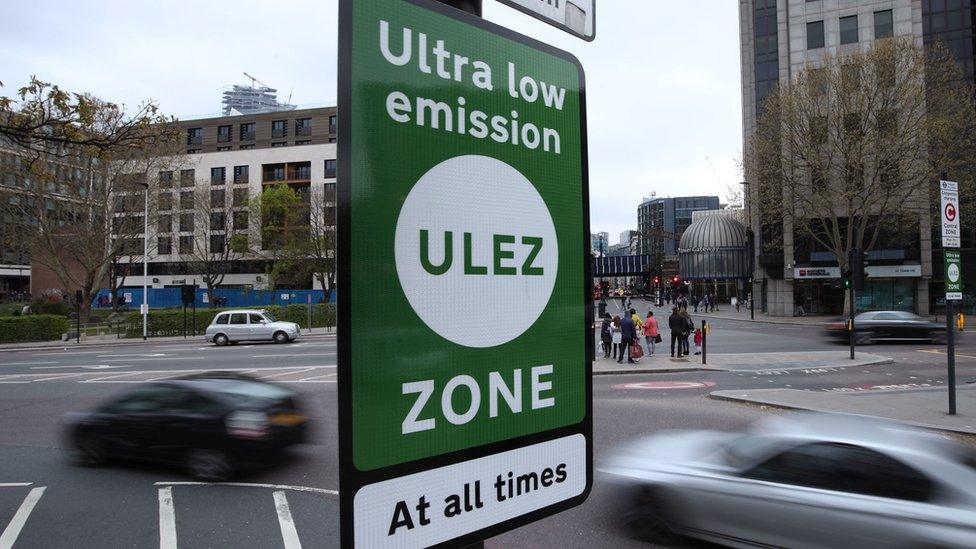
The expansion of the ULEZ is being opposed by a number of councils in and out of London
Usually when you talk to motorists in a line of traffic - one of the perks of my job - it takes a while to get people willing to engage with a camera crew.
Many drivers unsurprisingly won't wind down the window.
But when it comes to the ULEZ - the Ultra-Low Emission Zone expansion (or ULEX as some have called it) you can gather usually negative opinions very quickly.
ULEZ covers inner London at the moment and vehicles that are not compliant have to pay £12.50 a day to drive within the North and South circulars.
From August, the mayor wants to expand it out to cover the whole of the capital.
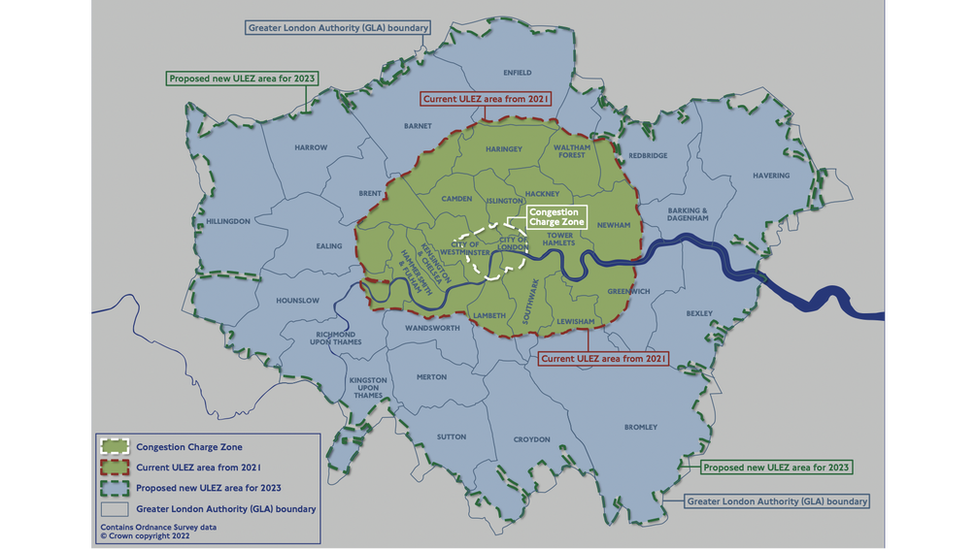
The proposed new expansion will cover all of London
You can check whether your vehicle is compliant here, external.
This is based on the concept that the "polluter pays" - it's trying to encourage you to switch to a cleaner vehicle or use public transport.
It is a policy some might think doesn't affect that many vehicles in the capital as almost half of households in London don't own a car.
However, car ownership varies across London - from 26% of households in Islington to 75% in Richmond.
Transport for London (TfL) says 85% of vehicles that drive in the zone are already compliant.
It also estimates the expanded ULEZ will affect 200,000 vehicles, although it expects that to drop quickly.
Sadiq Khan wrote to the prime minister on Wednesday, asking for central government funding for a targeted scrappage scheme aimed at helping people retrofit or replace vehicles that are not compliant.
As the commentator Dave Hill from onlondon.co.uk, external has said, some thought this was a policy whose bark was worse than its bite. Change was already happening as people moved away from older cars anyway.
The polling from YouGov, external commissioned by City Hall in October 2022 also showed 51% of Londoners asked supported ULEZ while 27% didn't.
Anecdotally, from talking to a line of car drivers, that perhaps doesn't seem to ring true.
Many drivers and outer London residents are furious at the concept that some may have to pay to drive.
There are many lining up against the expanded ULEZ, including councils, motoring groups, City Hall Conservatives and residents.
The policy is now being dissected with arguments over very specific statistics.
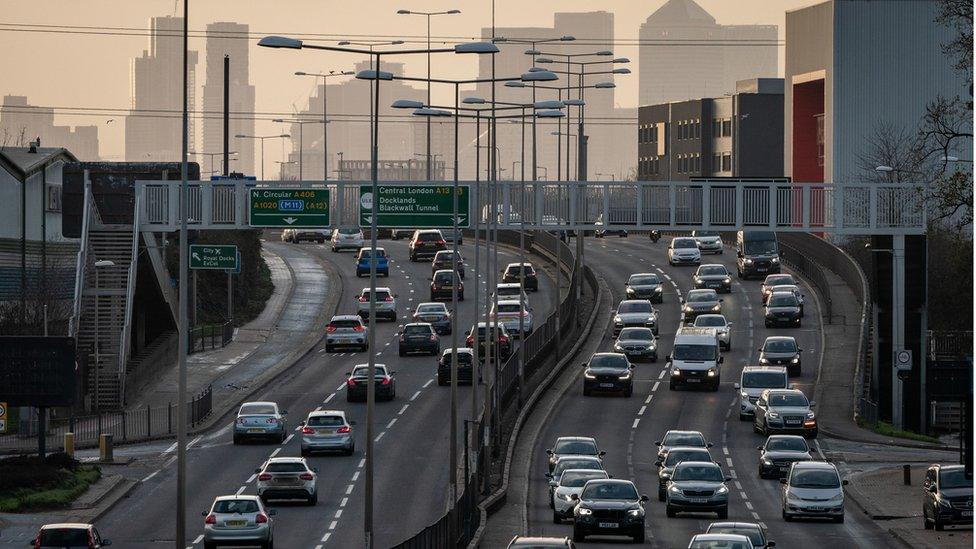
The Ultra Low Emission Zone will expand across all London boroughs from the end of August
One example is a line in the official independent assessment report, external by the firm Jacobs.
It is being seized by opponents like the Conservatives on the London Assembly.
The exact line is here from page 47 where it says the "Proposed Scheme is modelled to result in a minor reduction (-1.3%) in the average exposure of the population of Greater London to NO2 and negligible reductions (-0.1%) in average exposure to PM2.5".
That is enough for opponents to say it will make little difference to air quality.
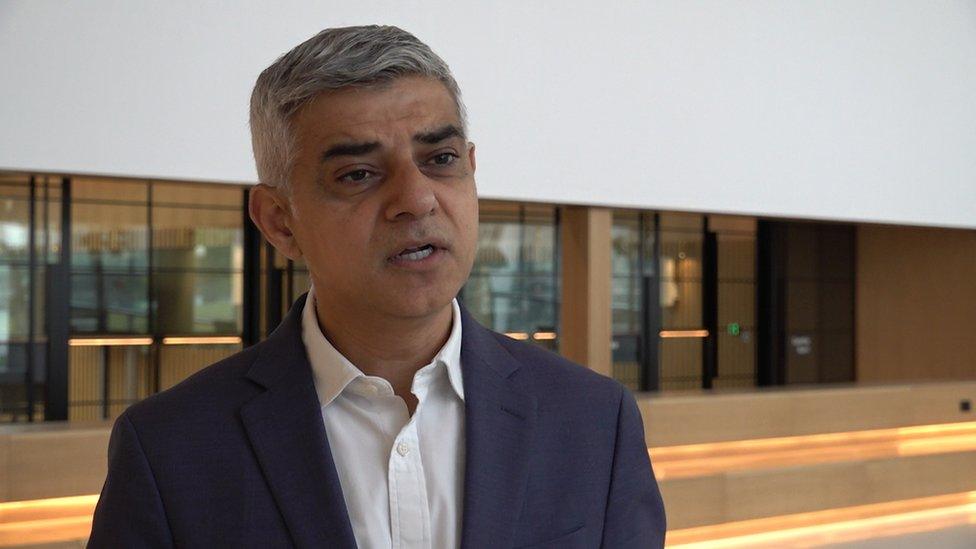
The mayor of London says expanding the ULEZ will improve air quality
City Hall has responded by saying it was "important to understand the impact of this policy in absolute terms".
"For example, although NO2 concentration reductions are smaller in percentage terms than for the central London ULEZ, in absolute terms there is a much larger volume of NOx emissions saved equating to 362 tonnes. This is in comparison to the 240 tonnes saving we saw in central London," a spokesperson said.
Illegal levels
Health experts though say away from the detail, what we should be focussing on is there is no safe level of pollution and any level of pollution is potentially harmful. Pollution can cause asthma and serious lung and cardiovascular conditions.
London air pollution levels are frequently found to break both UK legal and World Health Organization (WHO) limits for nitrogen dioxide (NO2), and WHO limits for PM2.5.
World expert on air quality, Prof Frank Kelly from Imperial College London, says expanding ULEZ will improve the health of Londoners.
"There is nowhere in London still that does meet the WHO air quality guidelines so that means everywhere you go the air you are breathing is having some impact on your health," he said.
"Absolutely expanding the ULEZ will benefit health because the ULEZ will lead to an improvement in air quality and traffic emissions and that means air quality will improve and when we see improvements in air quality we see health benefits."
Clean air campaigners want much more than expanding the ULEZ. They want wood burners to be controlled much more and more to be done to reduce other sources of pollution.
Ruth Fitzharris is from the campaign group Mums for Lungs. Her son was recently treated in hospital after suffering an asthma attack aggravated by pollution.
A young boy in hospital after having an asthma attack caused by air pollution
She welcomes the expansion of ULEZ.
"Next we need more to bring down the levels of air pollution so that we can actually live and bring up children in a place where the environment is conducive to health and not actually negative impacts on our health," she said.
The politics around the expanded ULEZ have become increasingly toxic and adversarial.
The scheme will face judicial review paid for by council tax payers.
Has the mayor overreached? Should clean air really this be a role for central government and not devolved city mayors?
Health experts are clear it will improve health. Some think ULEZ is going too far, others not far enough.
The questions for London are - how much pollution is acceptable, how fast should the change be and who should bear the cost?

Follow BBC London on Facebook, external, Twitter , externaland Instagram, external. Send your story ideas to hellobbclondon@bbc.co.uk, external
Related topics
- Published20 February 2023

- Published16 February 2023
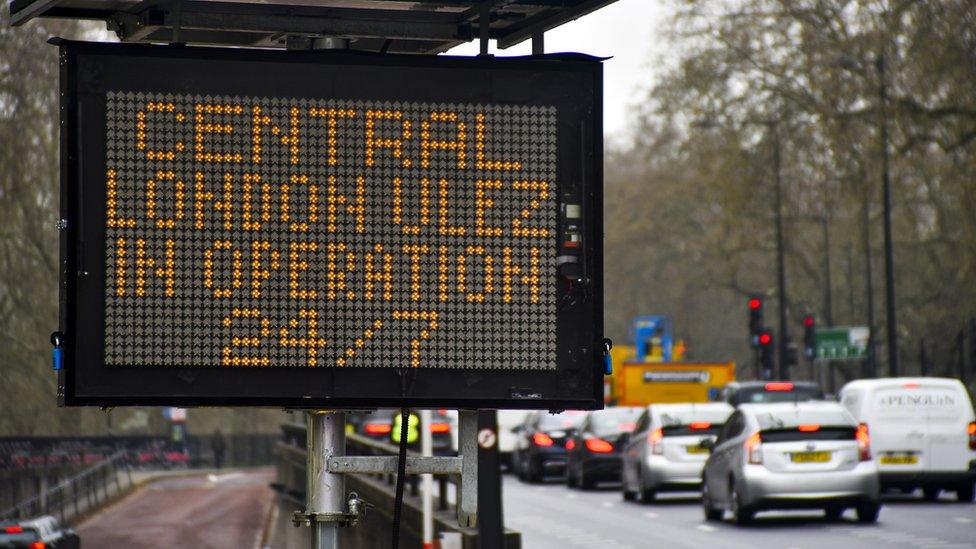
- Published16 February 2023

